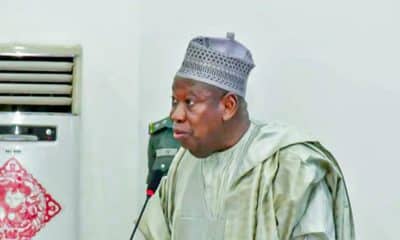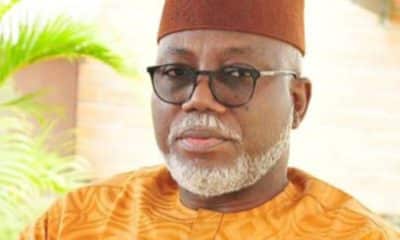Politics
Nigeria: Twenty Years Of American Electoral System

Nigeria has an appointment with the polls to elect new parliamentarians and especially the next President. And for that, the machine will work as in the United States.
Over 84 million voters listed by the Independent National Electoral Commission (INEC) will go to the polls for general elections: legislative, senatorial and presidential elections in February and then the Governorship and states house of assembly in March.
But, by entering the voting booth, every voter are expected to comply with what could be called “electoral instructions” in the first African economy. A manual defined in the constitution of 1999 and modelled almost on the model of the United States of America.
As in the country of Uncle Sam, it is a presidential regime. Nigerians must elect for four years renewable once, the president and his running mate, that is to say, who should be vice president of the Republic in case of victory.
Thus in 1999, Atiku Abubakar, presidential candidate coming on behalf of the People’s Democratic Party (PDP) became vice president of President-elect Olusegun Obasanjo. In 2015 Yemi Osinbajo was the running mate of Muhammadu Buhari who intends to run for a second consecutive term on behalf of his party All Progressive Congress (APC) – always with the same ticket.
If any contestant would occupy the Aso-Rock Villa Presidential Palace in Abuja, it is necessary to obtain 25% of the votes in two-thirds of the 36 states in the most populous country in Africa (more than 190 million inhabitants). after the 2017 census). If no candidate achieves this result, a re-run election is organized, opposing the first two.
A small difference
Nigerians are also called upon to elect their lawmakers: senators and representatives. The House of Representatives is composed of 360 members. As for the Senate, it consists of 109 members. 3 per state. The Federal Capital Territory, Abuja having a special status, has a senator. Senators and deputies are elected by universal suffrage for a four-year term of direct first-past-the-post voting.
And as in any democracy, lawmakers are responsible for controlling government action. Here, unlike many democracies and like the Americans, Senate advice is required for certain decisions including appointments to senior positions in the administration (eg Director General).
But there is a major difference between the Nigerian and American electoral system. According to information available at our level, there are no mid-term elections in Nigeria.
Maybe the option will be introduced one day. It will be sufficient for the constitution to be modified.












